Select Language

By Gavin Jones
ROME (Reuters) - Italy's growth rebound from the COVID-19 pandemic is petering out much faster than expected as structural weaknesses resurface, raising risks for the fragile public finances of the euro zone's third largest economy.
After gross domestic product unexpectedly stagnated in the third quarter, national statistics bureau ISTAT said this month it expected no near-term recovery and forecast 2024 growth of just 0.5%, half the government's official 1% target.
ISTAT's estimate would return Italy to its customary place among the euro zone's weakest performers and contradict an upbeat picture painted by Prime Minister Giorgia Meloni, as well as some economists, just a few months ago.
Recent data has been grim. Business confidence is at its lowest since 2021, a long-running manufacturing crisis is deepening, and the services sector which had propped up the economy for most of the year is now also contracting.
"Italy's business model made up of small firms is no longer conducive to growth, it has insufficient public investment and it is fighting the green transition instead of embracing it as a growth opportunity," said Francesco Saraceno, economics professor at Paris's Science Po and Rome's LUISS university.
Analysts say the situation is even more worrying considering that Italy is receiving a constant flow of tens of billions of euros from Brussels as part of the European Union's post-COVID Recovery Fund.
Spain, the other main recipient of the fund, is growing at least four times as fast.
SHORT-TERM BOOST
Saraceno said Italy's buoyancy in 2021-2022 was based mainly on state-funded incentives for the building sector - the so-called "superbonus" - which powered an investment surge that has reversed this year as the costly scheme has been phased out.
Italy has been the most sluggish euro zone economy since the launch of the single currency 25 years ago, and its latest slump threatens to derail its public finances that have already been compromised by the superbonus.
The public debt, proportionally the second largest in the euro zone, is forecast by the government to rise to around 138% of GDP in 2026 from 135% last year.
If growth in 2025 comes in significantly below Rome's 1.2% target, as most forecasters now expect, that debt ratio will probably climb faster. Investors may then become more reluctant to buy Italian bonds, increasing the government's heavy debt-servicing burden.
Italy is already under EU orders to slash its budget deficit due to massive overshoots in the last two years, removing any hope of spending its way to growth.
SPAIN POWERS AHEAD
The country's weakness stands in stark contrast to Spain, whose GDP is forecast to grow by around 3% this year. Over the last year Spain has expanded at quarterly rates of between 0.7% and 0.9%, while Italy has hovered between zero and 0.3%.
Angel Talavera, head of European research at Oxford Economics, said Spain's success in attracting migrants and integrating them into its economy had been a key driver of its growth, along with a tourism boom and firm consumer spending.
Italy's far fewer migrants rarely do skilled or even semi-skilled jobs, and are often confined to the informal economy.
Meanwhile young Italians are leaving the country in their thousands due to a lack of promising career prospects. The
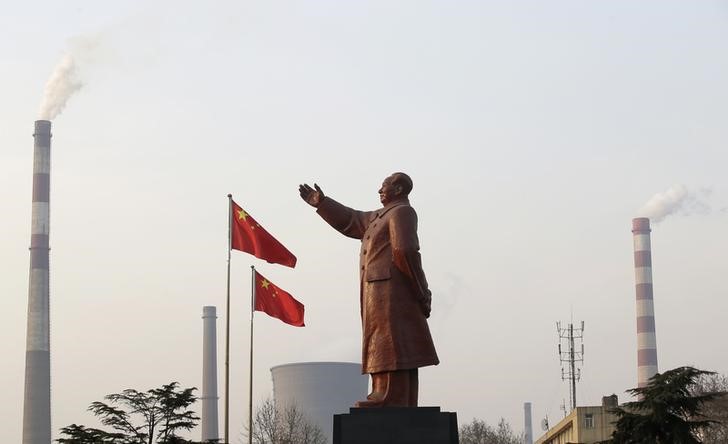
Investing.com-- China's top leaders have agreed to increase the country's budget deficit to 4% of gross domestic product (GDP) in 2025, marking the highest level on record, Reuters reported on Tuesday citing unnamed sources.
The decision, made during December's Politburo meeting and the Central Economic Work Conference (CEWC), aligns with plans for a more proactive fiscal policy to support economic growth, the report stated.
The new deficit target represents a significant rise from the previously projected 3% of GDP for 2024. The additional spending, equivalent to approximately 1.3 trillion yuan ($179.4 billion), will be funded partly through the issuance of off-budget special bonds, according to the report. Official announcements on these targets are expected during the annual parliamentary session in March.
After the news, Chinese stocks pared some losses. The Shanghai Composite index was slightly lower after falling nearly 0.7% earlier in the day. The Shanghai Shenzhen CSI 300 index climbed 0.8%, while Hong Kong’s Hang Seng index reversed earlier losses to gain 0.1%.
China is also maintaining an economic growth target of around 5% for 2024, consistent with this year’s goal, despite ongoing economic challenges such as the property market crisis, high local government debt, and weak consumer demand, the Reuters report said.
The CEWC summary emphasized the necessity of steady economic growth, alongside fiscal and monetary measures aimed at stabilizing the economy, a state media summary of the closed-door CEWC showed.
Reuters report stated that the central bank plans to adopt an "appropriately loose" monetary stance, potentially signaling more rate cuts and liquidity injections.
Additionally, China's economy faces looming external risks, including potential U.S. tariffs exceeding 60% on Chinese goods, should President-elect Donald Trump implement his campaign pledges. Analysts warn such measures could shrink profits for exporters, exacerbate overcapacity, and weigh on economic growth.
For now, Beijing appears prepared to rely on fiscal stimulus while exploring other tools, including exchange rate adjustments, to counter external pressures, the report added.
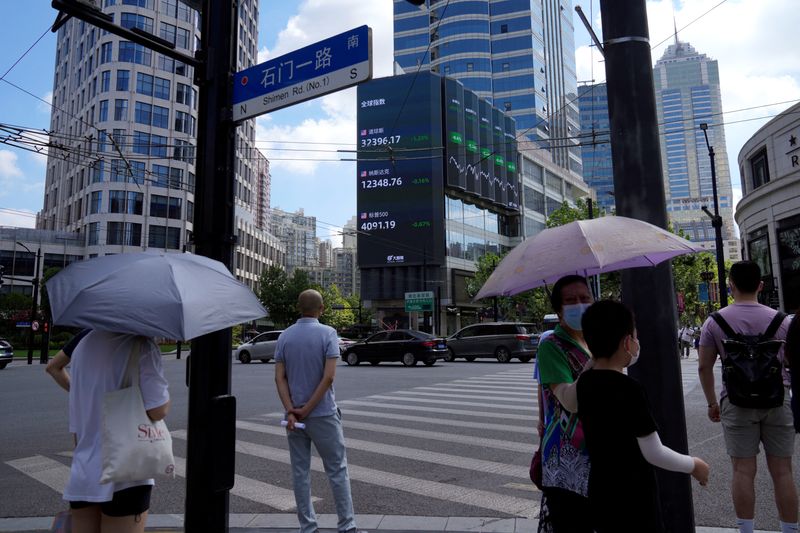
SHANGHAI (Reuters) - China's capital markets witnessed a record outflow of $45.7 billion in November, according to official data tracking cross-border investments in stocks and bonds.
Cross-border receipts of portfolio investment totalled $188.9 billion while payments totalled $234.6 billion, resulting in the biggest monthly deficit under the item, according to forex regulator data released late on Monday.
The portfolio data follows other China capital data that showed a similar trend.
China's central bank on Monday said that foreign institutions cut holdings in Chinese onshore bonds for the third consecutive month in November.
Separately, the Institute of International Finance (IIF), which tracks global portfolio flows, also recorded outflows last month in both China's bond and stock markets.
The IIF said the strengthening of the U.S. dollar in the wake of Donald Trump's victory helped shape portfolio flows in emerging markets including China.
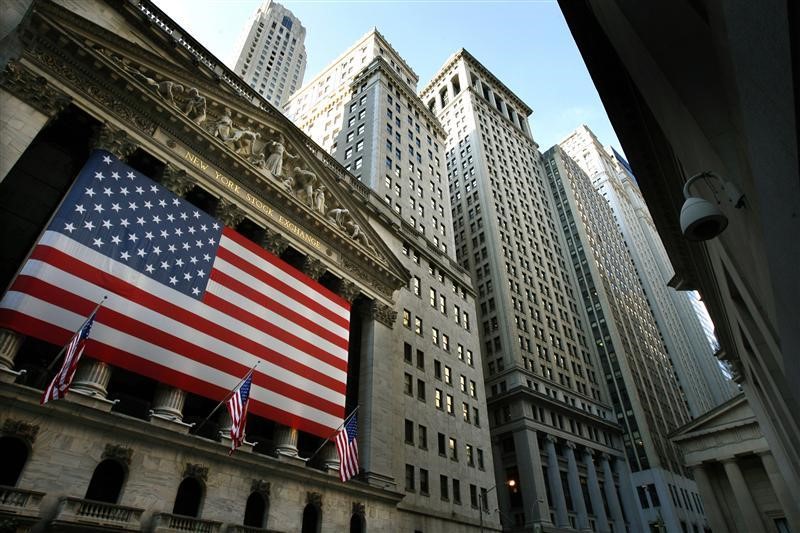
Investing.com-- U.S. stock index futures fell slightly on Monday evening as investors remained cautious before a Federal Reserve meeting this week, where the central bank is expected to cut rates but signal a slower pace of easing.
Futures steadied after a rally in technology stocks sparked some strength on Wall Street, with the Nasdaq hitting a record high. The Dow, on the other hand, clocked an eighth straight day of losses.
S&P 500 Futures fell 0.1% to 6,145.50 points, while Nasdaq 100 Futures fell 0.1% to 22,392.25 points by 18:25 ET (23:25 GMT). Dow Jones Futures fell 0.1% to 44,196.0 points.
Fed rate cut, outlook in focus
The central bank is widely expected to cut interest rates by 25 basis points at the conclusion of a two-day meeting on Wednesday.
While Wednesday’s rate cut appears to be largely priced in by markets, especially considering recent gains in Wall Street, focus will be chiefly on the central bank’s outlook on rates.
Investors are bracing for the Fed to signal a slower pace of easing in 2025 amid growing signs of sticky inflation and strength in the labor market- two major points of contention for the Fed.
Goldman Sachs analysts said in a recent note that they no longer expect a rate cut in January, and that the bank will cut rates by a slightly slower pace in the coming year.
Traders were seen pricing in a 81.9% chance the Fed will leave rates unchanged in January, CME Fedwatch showed.
Beyond the Fed, focus this week is also on retail sales and industrial production data.
Tech gains boost Nasdaq, Dow lags
Major tech stocks extended their recent rally on Monday, driving the Nasdaq Composite to record highs. But the Dow lagged amid sustained aversion towards economically sensitive stocks, as investors remained uncertain over policy under incoming President Donald Trump.
Chips stocks rallied tracking Broadcom Inc (NASDAQ:AVGO), as the network chips maker extended a recent rally on strong artificial intelligence-fueled earnings and guidance. The prospect of lower rates in the near-term also boosted other heavyweight tech stocks, such as Apple Inc (NASDAQ:AAPL), Amazon.com Inc (NASDAQ:AMZN) and Alphabet Inc (NASDAQ:GOOGL).
The S&P 500 rose 0.4% to 6,074.08 points, while the NASDAQ Composite surged 1.2% to a record high of 20,173.74 points on Friday. The Dow Jones Industrial Average fell 0.3% to 43,717.48 points.

PARIS (Reuters) - France's services sector shrank further in December, although the pace of contraction eased, according to a closely-watched business survey by S&P Global published on Monday.
The HCOB Services PMI Business Activity Index rose to 48.2 from 46.9 in November, surpassing analysts' expectations for a reading of 46.7, though still below the 50.0 threshold that indicates growth.
The broader French private sector also experienced a slight improvement, with the Composite PMI Output Index climbing to 46.7 from 45.9, beating the forecast of 45.9, despite manufacturing activity falling to a 55-month low of 39.6 from 41.1.
"The service sector remains in limbo. Apart from a brief period around the Summer Olympics in Paris, service providers have struggled to generate growth momentum," said Tariq Kamal Chaudhry, Economist at Hamburg Commercial Bank.
Political instability and weak demand conditions were highlighted by survey respondents as key challenges, contributing to a sharp reduction in employment.
Despite a modest improvement in business confidence, the outlook remains subdued amid ongoing political uncertainty, the survey showed.
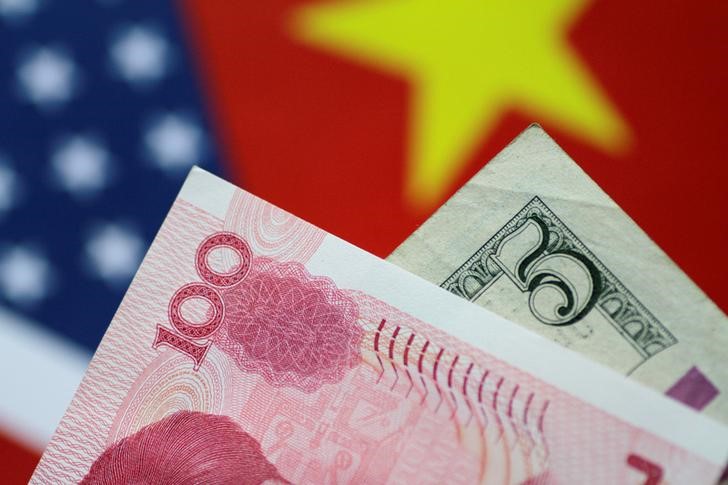
Investing.com-- Most Asian currencies edged lower on Monday as the dollar remained near a three-week high ahead of the Federal Reserve meeting, while China's weaker-than-expected retail sales data stoked concerns about the country’s economic recovery.
The U.S. Fed is expected to cut interest rates by 25 basis points this week, however, the dollar has been bolstered by expectations of a slower rate cut path by the Fed in 2025.
In Asia, although interest rates are also expected to decline, the cuts are projected to be more gradual, limiting the degree of currency appreciation relative to the U.S. dollar.
The US Dollar Index inched slightly lower in Asian trade on Monday but was hovering near a three-week high mark. The US Dollar Index Futures marginally lower.
Chinese yuan slips after weak retail sales data
The Chinese yuan’s onshore USD/CNY pair rose 0.2% and remained near a two-year high mark, while the offshore pair USD/CNH edged 0.1% higher.
Chinese industrial production grew as expected in November as recent stimulus measures from Beijing supported business activity, data showed on Monday.
However, retail sales for November were much lower compared to forecasts, and below last year’s reading, reflecting ongoing weakness in consumer spending despite policy support.
“Household confidence clearly remains soft, and it remains to be seen if the ‘vigorous support’ for consumption promised next year will be effective in stimulating a recovery. We expect the rollout of supportive policies could take some time, but overall retail sales growth should recover in 2025,” ING analysts said in a note.
The lingering slowdown in China is weighing on regional currencies. China's weaker-than-expected retail sales and ongoing challenges in its recovery are creating uncertainty across the broader Asia-Pacific region.
Dollar near 3-week high, Asia FX dips
The dollar index was hovering near its highest level since November 26, even as traders positioned for a Fed rate cut next week.
With the U.S. dollar remaining and slower adjustments in rate policies across Asia, the outlook for regional currencies remains pressured. Also, incoming President Donald Trump’s policies to impose additional tariffs on China or competitive devaluations in response to tariffs are both seen as dollar-positive.
The Japanese yen’s USD/JPY pair inched up 0.1% as the Bank of Japan was likely to keep interest rates unchanged this week, in contrast to earlier expectations of a hike.
The Singapore dollar’s USD/SGD pair inched slightly higher, while the Australian dollar’s AUD/USD pair gained 0.3%.
The Indian rupee’s USD/INR pair was largely unchanged, remaining near an all-time high hit last week.
The South Korean won’s USD/KRW pair inched marginally higher. Country’s President Yoon Suk Yeol was impeached in a second vote by the opposition-led parliament on Saturday, over his attempt to impose martial law in the country.
South Korea's finance ministry vowed on Sunday to continue to swiftly deploy market stabilizing measures as needed to support the economy after the impeachment.

BEIJING (Reuters) -China's new home prices fell at the slowest pace in 17 months, official data showed on Monday, as the government scaled up stimulus measures to lift the crisis-hit property sector.
New home prices were down 0.1% month-on-month after a 0.5% dip in October, the slowest pace since June last year, according to Reuters calculations based on National Bureau of Statistics data.
In annual terms, new home prices fell 5.7% after a 5.9% drop the previous month.
China's policymakers in recent months doubled down on their efforts to revive the country's property sector, which crashed in 2021 after a government-led campaign to rein in developers' leverage left them cash-strapped.
The country's top leadership vowed in a meeting of the Politburo on Dec. 9 and the Central Economic Work Conference, held on Dec. 11-12, to stabilise the property market.
Among 70 cities surveyed,month-on-month home prices rose in 17 cities, an increase of 10 from the previous month.
Recent measures aimed at encouraging homebuying included cutting mortgage rates and minimum down-payment ratios, as well as tax incentives to lower the cost of housing transactions.
The biggest cities, including Beijing and Shanghai, have since implemented the tax breaks to spur housing sales.
Last month, home prices rose 0.6% and 0.3% on month in Shanghai and Shenzhen, separately, and fell 0.5% in Beijing.
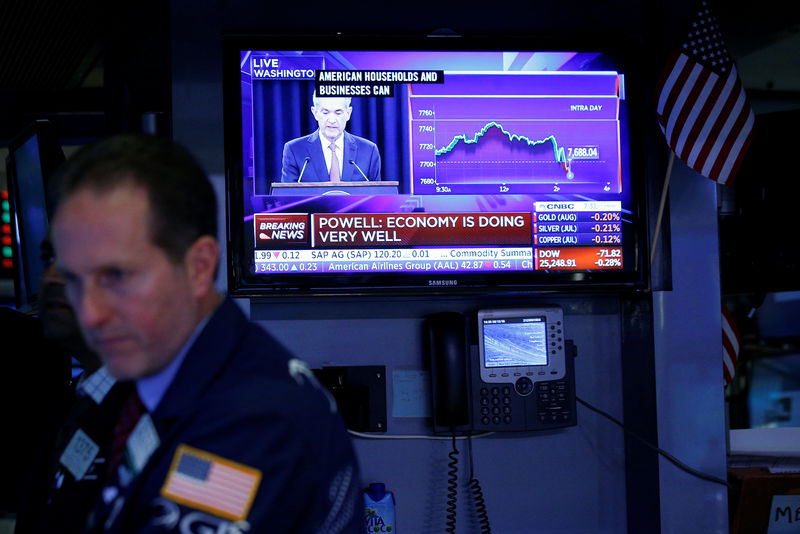
Investing.com -- The end of the year is coming into view but before then the Fed will deliver its final policy decision for 2024, along with the Bank of Japan and the Bank of England. Here's your look at what's happening in markets for the week ahead.
1. Fed decision
The Fed is widely expected to deliver another 25-basis point rate cut after its final meeting of the year on Wednesday, in what would be its third straight reduction.
With the cut already fully priced in, investors are focusing on any guidance around how much further rates could be cut in 2025.
The Fed's updated summary of economic projections released at the meeting will provide one indication of where policymakers see rates heading. In a sign of possible support for a slower pace of rate cuts next year Fed Chair Jerome Powell said this month the economy is stronger now than the central bank had anticipated in September.
“In our view, risks for the meeting skew dovish relative to market expectations,” analysts at Citi said in a note on Friday.
“Chair Powell will likely repeat that rate cuts can slow if inflation picks up, but they can also speed up if the unemployment rate continues to rise and the soft jobs report together with slowing inflation may have officials once again paying a bit more attention to the employment mandate.”
2. BOJ meeting
The Bank of Japan is to hold its final meeting for 2024 on Thursday and while market expectations have swung widely in the past two weeks as the decision draws nearer a consensus is forming that officials will hold steady.
Reuters reported on Thursday that policymakers are leaning towards a pause, waiting for further data on wages and clarity on Donald Trump's policies before hiking rates for a third time.
A day earlier, Bloomberg reported that BOJ officials see "little cost" from delaying additional tightening.
But market volatility could be high going into the meeting with the outcome still uncertain. One potential risk is that the Fed holds off cutting rates on Wednesday, triggering a jump in the dollar-yen exchange rate.
But analysts have noted that it would be very rare for the Fed to go against the grain when market expectations for a cut are so strong.
3. BoE expected to hold
The BoE is widely expected to keep rates on hold at 4.75% on Thursday and is seen holding off from delivering a third rate 25-bps rate cut until February. Markets are currently pricing in three quarter-point rate cuts by the end of next year.
Data on Friday showed that the UK economy contracted for the second month in a row in October, adding to concerns over the outlook after recent business surveys pointed to weakness and retail sales flatlined.
The BoE is unlikely to be sufficiently concerned over GDP to cut rates this week.
Last month the central bank trimmed its annual growth forecast for 2024 to 1% from 1.25% but forecast a stronger 2025 with 1.5% growth, reflecting a short-term boost to the economy from Chancellor Rachel Reeves' budget.
4. PMI data
Global PMI numbers this week will give investors fresh insight into the health of the world’s economy after data in November indicated that sluggishness in the manufacturing sector is spreading to service sector activity.
The November eurozone composite PMI, seen as a good gauge of overall economic health, sank to 48.3 from October's 50.0.
Britain's all-sector PMI fell to its lowest in a year at 50.9 - just above the marker that separates contraction from expansion. Even U.S. services sector activity slowed.
Uncertainty over U.S. tariff along with political turmoil in France and Germany have the potential to hurt business activity.
5. Oil prices
Oil prices ended Friday at the highest level in three weeks amid expectations that additional sanctions on Russia and Iran could tighten supplies and that lower interest rates in Europe and the U.S. could bolster the demand outlook.
Brent gained 5% for the week, while WTI posted a 6% gain for the week and closed at its highest since Nov. 7.
The European Union has agreed to impose a 15th package of sanctions on Russia over its war against Ukraine, targeting its shadow tanker fleet. The U.S. is considering similar moves.
The European Central Bank cut interest rates again on Thursday and indicated further rate cuts were on the cards in 2025 provided inflation settles at the bank's 2% target as expected.
Meanwhile, investors are betting that the Fed will cut rates again on Thursday with further cuts to follow next year.
Lower interest rates can boost economic growth and demand for oil.
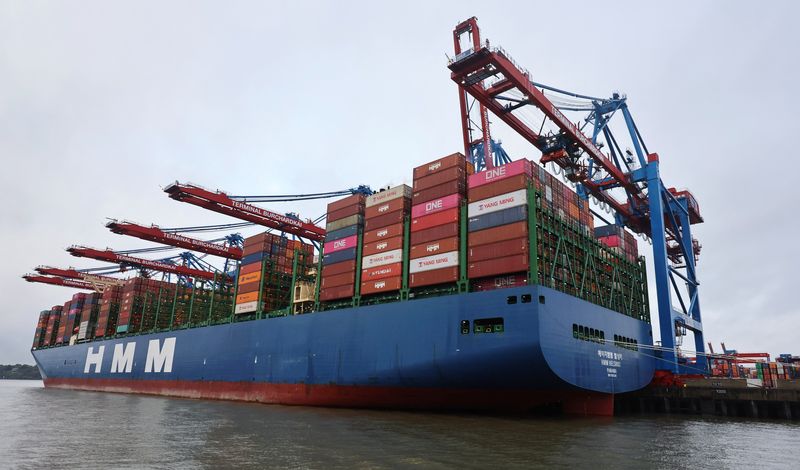
By Maria Martinez
(Reuters) -German exports fell more than expected in October, an indication that the long-awaited recovery in external demand has been delayed.
Exports fell by 2.8% compared with the previous month, data from the federal statistics office showed on Friday.
The result went beyond the 2% decrease forecast in a Reuters poll.
The foreign trade balance showed a surplus of 13.4 billion euros ($14.02 billion) in October, down from 16.9 billion euro the previous month and 18.9 billion euros in October 2023.
Exports to EU countries dropped by 0.7% on the month and exports to third countries declined by 5.3%, data from the statistics office showed.
Most German exports in October went to the United States, although exports of goods to the U.S. were down 14.2% compared with September.
Exports to China decreased by 3.8% on the month and exports to the U.K. rose by 2.1%, the statistics office said.
($1 = 0.9559 euros)

By Florence Tan and Siyi Liu
SINGAPORE (Reuters) - Oil prices stabilised on Friday, heading for their first weekly rise since the end of November, as additional sanctions on Iran and Russia ratcheted up supply worries, while a surplus outlook weighed on markets.
Brent crude futures edged up 7 cents to $73.48 a barrel by 0434 GMT, while U.S. West Texas Intermediate crude was at $70.11 a barrel, up 9 cents.
Both contracts are on track for a weekly gain of more than 3% as concerns about supply disruption from tighter sanctions on Russia and Iran, and hopes that Chinese stimulus measures could lift demand in the world's No. 2 oil consumer support prices.
Recent stabilisations came after oil defended a key technical level of $71, said Yeap Jun Rong, market strategist at IG.
"But there has not been much conviction to prompt a stronger price recovery just yet," he added.
Chinese data this week showed crude imports grew annually for the first time in seven months in November, driven by lower prices and stockpiling.
"We have seen a bit of a recovery in refinery margins since the September lows, but don't think it's anything to justify the November crude import volumes," said Warren Patterson, ING's head of commodities research.
Crude imports by the world's largest importer are set to stay elevated into early 2025 as refiners opt to lift more supply from top exporter Saudi Arabia, drawn by lower prices, while independent refiners rush to use their quota.
The International Energy Agency increased its forecast for 2025 global oil demand growth to 1.1 million barrels per day (bpd) from 990,000 bpd last month, thanks to China's recent stimulus measures, it said in its monthly oil market report.
However, it forecast a surplus for next year, when non-OPEC+ nations are set to boost supply by about 1.5 million barrels per day (bpd), driven by Argentina, Brazil, Canada, Guyana and the United States.
"I guess with an outlook for a fairly comfortable balance (there is) little reason (for prices) to break out of this range for now," ING's Patterson.
Three of Canada's biggest oil producers forecast higher output in 2025. Building on record U.S. production, Goldman Sachs expects Lower 48 shale oil production to grow by 600,000 bpd in 2025, although growth could slow if Brent falls below $70 a barrel.
Investors are also betting that the Fed will cut borrowing costs next week and follow up next year with further reductions, after economic data showed weekly claims for unemployment insurance unexpectedly rose.

